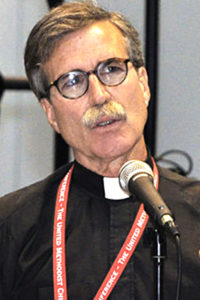Over the Post-Roe Blues (Part II)
The Supreme Court’s Dobbs decision overturning Roe v. Wade sparked celebration and joy throughout the pro-life community. It also unleashed protest and anger in many sectors of the pro-abortion community.
“Pro-choice” outbursts of fury in the streets and in the media were a sober reminder to the pro-life community that we are, and always have been, in a precarious position. While prolifers make up a formidable social and political force in our society, we lack the overwhelming institutional support enjoyed by abortion advocates. Medicine, law, media, education, entertainment, and increasingly, corporate America are generally pro-choice in their ethos and messaging. In short, abortion supporters are the establishment.
Throughout history, others have faced similar seemingly overwhelming opposition. Consider the Swiss Calvinist Karl Barth (1886-1968), the greatest Protestant theologian of the twentieth century. After serving as a Reformed Church pastor for several years in Switzerland, Barth became a professor of theology and, between 1921 and 1935, taught at three German universities.
Barth’s public witness could be described as an unofficial minority report. In the early 1930s, National Socialism was metastasizing in German culture and politics—particularly among the country’s elites, and especially in the universities. It was poisoning, if not unto death, most German institutions—including the churches. Barth recognized the National-Socialist threat for what it was—darkness, lies, and violence. As a Christian theologian, he was deeply disturbed by Hitler’s plan to take over the churches and make the Gospel serve Nazi ideology.
Barth was not alone. There were other Protestant pastors, professors, and laity who were disgusted and alarmed by National Socialism’s infiltration of the churches and manipulation of the Gospel. Many bonded together to form the “Confessing Church” (to confess the Church’s historic faith over against National Socialism’s politicized faith). In late May of 1934, they gathered in Barmen, Germany, to issue a theological declaration to strengthen church resistance to the Nazi threat.
Earlier that month, Barth had met with two Lutherans, Hans Asmussen and Thomas Breit, at the Basler Hof Hotel in Frankfurt. The three had been charged by Confessing Church leaders with drafting the declaration that would be refined and adopted at the Barmen gathering. About the actual writing of it, Barth quipped: “The Lutheran Church slept, and the Reformed Church kept awake.” In reality, he reported, while the two Lutherans took a three-hour nap, he “revised the text of the [declaration’s] six statements, fortified by strong coffee and one or two Brazilian cigars.” Two weeks later, the pastors and professors at Barmen enthusiastically endorsed what is known today as the Barmen Declaration. (Google it, read it, and be inspired by it, if you dare.)
In the face of what seemed to be an overpowering totalitarian enemy, the Barmen Declaration asserted the truth about Jesus Christ and His Church. In every line, if not every word, it challenged National Socialism’s ruthless takeover of the churches and the Gospel. For example, Article 2 thundered: “We reject the false doctrine, as though there were areas of our life in which we would not belong to Jesus Christ, but to other lords. . . .” In the midst of a rising Nazi tide, Barmen proclaimed that only Jesus Christ is Lord—not National Socialism, not the Fuhrer, not vicious and violent bureaucrats.
“For All the Saints,” one of the Church’s great hymns, offers hope to the saintly in their earthly struggles: “And when the strife is fierce, the warfare long,/steals on the ear the distant triumph song, and/hearts are brave again, and arms are strong/Alleluia, Alleluia!” (stanza 5). The Barmen Declaration offered a measure or two of “the distant triumph song” to embolden Protestants who were suffering under National Socialism.
Today, government officials in the United States, at both the federal and state level, are using raw (not constitutional) power and plentiful resources to harass, intimidate, and undermine the pro-life movement. The Justice Department, for instance, has launched a campaign against abortion clinic protestors, with gun-toting FBI agents making early-morning, at-home arrests in front of pajama-clad little children. Meanwhile, pregnancy centers are vandalized or destroyed, demonstrators illegally disrupt the neighborhoods and threaten the lives of Supreme Court justices, churches are defaced and desecrated—and law enforcement is not bothered.
Karl Barth and the Confessing Church faced similar circumstances. In 1935, when Barth refused to sign an oath of allegiance to Hitler—he had mailed Hitler a copy of the Barmen Declaration—he lost his university job and subsequently returned to Switzerland. The response is simple but difficult. Be faithful to Jesus Christ and His Lordship—which includes not only helping to protect the lives of unborn children and their mothers but also taking part in the political process and voting. Fixing everything is beyond our ability. But we can stand up for what we believe. Be faithful—in word and in deed—one day at a time.










